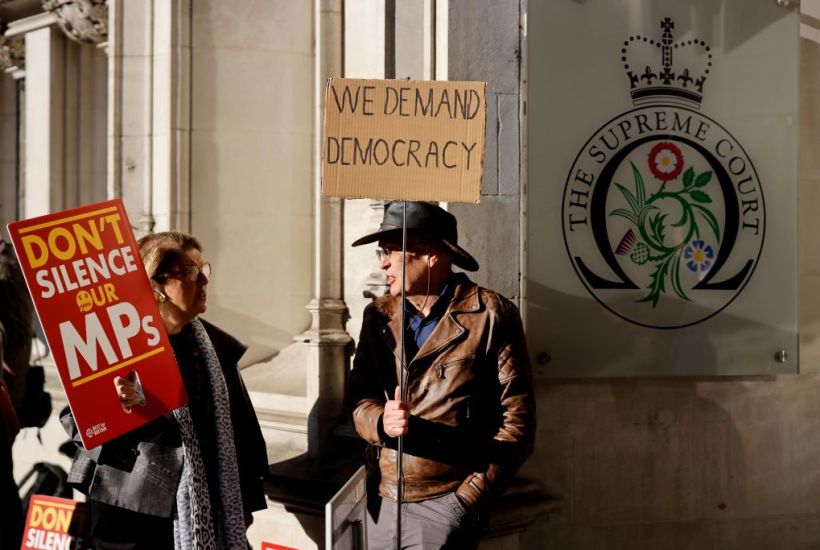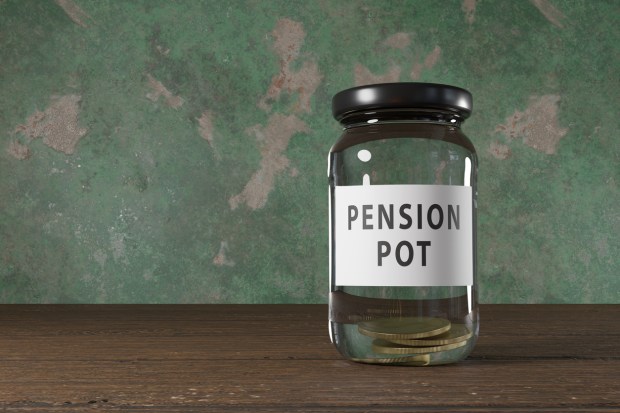Ignore, with great respect, the people telling you today that the justices of the Supreme Court have waded into politics, exceeded their mandate and involved themselves in matters that belong to elected officials not the judiciary.
Take five minutes to read the Court’s judgement on Boris Johnson’s prorogation of Parliament, where you will find a crystal-clear elucidation of principles that everyone – but perhaps especially those who favour leaving the EU – should celebrate and defend.
Before I get to that, it appears to be necessary to point out what the Court has not done and not said. The judges have not ruled that Boris Johnson lied to the Queen, even though many people who really should know better are saying this. David Lammy, for instance:
Boris Johnson broke the law and lied to the Queen. Now open the doors of Parliament and resign. https://t.co/4QqCkqQcrm
— David Lammy (@DavidLammy) September 24, 2019
In fact, the court took no position on whether Johnson’s reasons for seeking prorogation were honestly stated. Lammy, several professional journalists and countless #FBPE tweeters are simply wrong when they say that the court has found that the PM “lied to the Queen”.
The ruling is actually simpler than that and about something more important: the constitutional primacy of Parliament. By taking actions that had the effect of preventing Parliament scrutinising his Government, the Prime Minister acted unlawfully. This isn’t about why he did what he did. This is about what he did.
One paragraph, number 55, of the judgement should be shared as widely as possible, plastered on front pages, taught to school children and possibly tattooed onto the skin of anyone, of any party, employed as a Government special adviser:
“Let us remind ourselves of the foundations of our constitution. We live in a representative democracy. The House of Commons exists because the people have elected its members. The Government is not directly elected by the people (unlike the position in some other democracies). The Government exists because it has the confidence of the House of Commons. It has no democratic legitimacy other than that. This means that it is accountable to the House of Commons – and indeed to the House of Lords – for its actions, remembering always that the actual task of governing is for the executive and not for Parliament or the courts.”
The judgement turns on what follows:
“The first question, therefore, is whether the Prime Minister’s action had the effect of frustrating or preventing the constitutional role of Parliament in holding the Government to account…The answer is that of course it did.”
The court also demolishes the Government’s central defence for prorogation by use of simple fact: proroguing Parliament is not the same as allowing it to go into the normal party conference recess, since Parliament can decide to return from recess to exercise scrutiny, but cannot do so while prorogued.
And Parliament, to repeat, is the heart of our constitution. We hear a lot about a “Remain Parliament” and MPs “frustrating the will of the People” and we may yet get a general election fought on such ground, Johnson casting himself as the servant of the people thwarted by MPs and judges and the like.
But to read that judgement is to be reminded that these arguments are based on a category error. The people express their will at the ballot box: they voted to leave the EU, so we must leave. They also elected the current House of Commons in 2017. From that Parliament, the Government of Boris Johnson draws its authority; nowhere else.
When Parliament thwarts the executive, that is the will of the people being expressed by the people’s representatives. Parliament cannot frustrate the Will of the People because its authority comes from those people; what it does, it does in their name and with their authority. And if the people are unhappy about that, they can choose another Parliament when the next election comes
Members of Parliament exist to check and limit the exercise of executive power. Then they answer to the electorate for their actions. Those are the foundation stones of our democracy. Those principles, set out with glorious clarity by the Supreme Court, are what make this a free society where we can all live confident that the rules and policies that affect us are made and upheld by people who answer to us. They are what protect us from unreasonable and harmful use of government power. And those curbs on executive power are what allow us to live freely, to invest and trade and strike contracts, confident in the knowledge that all our dealings take place in a framework of rules made and upheld by people who work for us, who we hire and fire.
Whatever your politics, wherever you are on the Brexit question, you should take comfort in today’s laser-sharp restatement of parliamentary primacy. But those who should cheer most loudly for the Supreme Court today are the Eurosceptics and Brexiteers, who fought so long to bring power back from the European level and to restore Parliament to its rightful place at the apex of the British constitution.
Got something to add? Join the discussion and comment below.
Get 10 issues for just $10
Subscribe to The Spectator Australia today for the next 10 magazine issues, plus full online access, for just $10.




















Comments
Don't miss out
Join the conversation with other Spectator Australia readers. Subscribe to leave a comment.
SUBSCRIBEAlready a subscriber? Log in